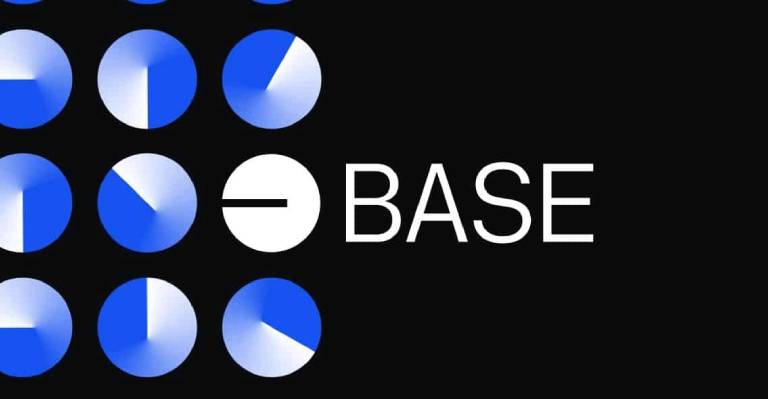 web3.0
web3.0 Layer 1 Blockchain Flare and Red Date Technology Set to Trial Stablecoin Buying for Chinese Nationals in Hong Kong
Layer 1 Blockchain Flare and Red Date Technology Set to Trial Stablecoin Buying for Chinese Nationals in Hong KongThe Hong Kong-based trials will allow for registration on a regulated stablecoin app and the purchase of tokenized financial products.

Layer one blockchain Flare and decentralized cloud infrastructure company Red Date Technology are set to trial two initiatives that will allow mainland Chinese residents to buy stablecoins issued by virtual asset company IDA in Hong Kong.
The first trial will enable anonymous registration on a regulated stablecoin app, while the second will facilitate the purchase of tokenized financial products with the stablecoin.
“With Hong Kong on the cusp of announcing new stablecoin regulations allowing digital currencies on public blockchains, the introduction of this KYC solution trial gives Mainland Chinese residents their first opportunity to legally hold public chain wallets and transact with stablecoins, such as HKDA, a fiat-referenced Hong Kong Dollar stablecoin issued by IDA. This project signals a possible first step in aligning with China’s long-term approach to integrating blockchain technology,” the companies said in a statement.
China has a strict stance on residents dealing in cryptocurrencies, still the country has been investing heavily in blockchain technology. Despite the popularity of crypto trading, state-backed projects are often more focused on B2B and corporate use cases. Blockchains tend to be permissioned rather than permissionless, and NFT projects — including ones released by local museums — have been warned that their purpose should be for collecting rather than speculation.
The trials in Hong Kong will use the China Real-Name Decentralized Identifier System (RealDID) for anonymous registration. A blockchain-based ID system launched in China in December last year, and it is being run by the Blockchain-based Service Network, which is backed by Red Date Technology, and the Ministry of Public Security’s First Research Institute.
Under Chinese law, users on digital services platforms are required to undergo real-name registration. But by using RealDID, they can remain anonymous to companies and platforms while still meeting real-name compliance requirements under Chinese law. In Hong Kong, they will be able to access stablecoins and other token-based financial products without needing to submit passports or bank statements.
It does not appear that major stablecoins such as Tether and Circle’s U.S. dollar stablecoins will be available.
Edited by
Disclosure
Please note that our privacy policy, terms of use, cookies, do not sell my personal information CoinDesk is an award-winning editorial policies.
Callan Quinn is a Hong Kong-based news reporter at CoinDesk. She holds more than $1,000 of ETH.
The above is the detailed content of Layer 1 Blockchain Flare and Red Date Technology Set to Trial Stablecoin Buying for Chinese Nationals in Hong Kong. For more information, please follow other related articles on the PHP Chinese website!
 Hong Kong Lawmaker Proposes Adding Bitcoin to the Region's Financial ReservesJul 30, 2024 am 03:47 AM
Hong Kong Lawmaker Proposes Adding Bitcoin to the Region's Financial ReservesJul 30, 2024 am 03:47 AMMotivated by recent global discussions and BTC endorsement by former US president Donal Trump, Legislative Council Member Johnny Ng has announced a crypto positive news.
 Base Surpasses Solana as the Leading Blockchain for Stablecoin Transactions, Signaling a Shift in the Market LandscapeOct 29, 2024 am 04:04 AM
Base Surpasses Solana as the Leading Blockchain for Stablecoin Transactions, Signaling a Shift in the Market LandscapeOct 29, 2024 am 04:04 AMOn October 26, Ethereum's layer-two network, Base, reached a notable milestone by temporarily becoming the leading blockchain in stablecoin transaction volume.
 Stablecoins Become Lifeline for Citizens in LatAm Grappling with Economic InstabilityOct 10, 2024 am 09:58 AM
Stablecoins Become Lifeline for Citizens in LatAm Grappling with Economic InstabilityOct 10, 2024 am 09:58 AMStablecoins like USDT have become a key financial tool in Latin America that helps citizens navigate persistent economic volatility, according to Chainalysis’ global adoption report.
 Tether (USDT) Invests $100M into Latin American Agricultural Giant Adecoagro, Signaling a Major Pivot toward TokenizationSep 13, 2024 pm 09:05 PM
Tether (USDT) Invests $100M into Latin American Agricultural Giant Adecoagro, Signaling a Major Pivot toward TokenizationSep 13, 2024 pm 09:05 PMThis week, the largest stablecoin by market cap, Tether (USDT), announced a major investment into Latin American agricultural giant Adecoagro.
 Circle Internet Financial Plans Hong Kong Expansion Ahead of Anticipated Stablecoin RegulationsNov 05, 2024 pm 09:38 PM
Circle Internet Financial Plans Hong Kong Expansion Ahead of Anticipated Stablecoin RegulationsNov 05, 2024 pm 09:38 PMCircle Internet Financial, the firm behind the USDC stablecoin, recently disclosed its plans to expand into Hong Kong. This move comes as Circle prepares to launch an Initial Public Offering (IPO), with expectations of new stablecoin regulations.
 Amid a general downtrend in the overall cryptocurrency market capitalization, the stablecoin sector exhibited contrasting behavior, achieving a record-high market capAug 10, 2024 pm 12:40 PM
Amid a general downtrend in the overall cryptocurrency market capitalization, the stablecoin sector exhibited contrasting behavior, achieving a record-high market capAug 10, 2024 pm 12:40 PMThis divergence highlighted the unique dynamics within different segments of the crypto market. Amid a general downtrend in the overall cryptocurrency
 Tether (USDT) and USD Coin (USDC) Market Cap and Supply Spike Following Ethereum (ETH) ETF ApprovalJul 27, 2024 pm 01:06 PM
Tether (USDT) and USD Coin (USDC) Market Cap and Supply Spike Following Ethereum (ETH) ETF ApprovalJul 27, 2024 pm 01:06 PMAMBCrypto's analysis of various stablecoin metrics has revealed significant trends, particularly in the stablecoin supply and market capitalization.
 Tether Announces Record $2.5B Profit in Q3 2024, Underscoring Growing Demand for USDTNov 01, 2024 pm 01:30 PM
Tether Announces Record $2.5B Profit in Q3 2024, Underscoring Growing Demand for USDTNov 01, 2024 pm 01:30 PMTether, the prominent issuer of stablecoin USDT, announced record-breaking profits of $2.5 billion for the third quarter of 2024

Hot AI Tools

Undresser.AI Undress
AI-powered app for creating realistic nude photos

AI Clothes Remover
Online AI tool for removing clothes from photos.

Undress AI Tool
Undress images for free

Clothoff.io
AI clothes remover

AI Hentai Generator
Generate AI Hentai for free.

Hot Article

Hot Tools

SublimeText3 Chinese version
Chinese version, very easy to use

mPDF
mPDF is a PHP library that can generate PDF files from UTF-8 encoded HTML. The original author, Ian Back, wrote mPDF to output PDF files "on the fly" from his website and handle different languages. It is slower than original scripts like HTML2FPDF and produces larger files when using Unicode fonts, but supports CSS styles etc. and has a lot of enhancements. Supports almost all languages, including RTL (Arabic and Hebrew) and CJK (Chinese, Japanese and Korean). Supports nested block-level elements (such as P, DIV),

Notepad++7.3.1
Easy-to-use and free code editor

DVWA
Damn Vulnerable Web App (DVWA) is a PHP/MySQL web application that is very vulnerable. Its main goals are to be an aid for security professionals to test their skills and tools in a legal environment, to help web developers better understand the process of securing web applications, and to help teachers/students teach/learn in a classroom environment Web application security. The goal of DVWA is to practice some of the most common web vulnerabilities through a simple and straightforward interface, with varying degrees of difficulty. Please note that this software

SecLists
SecLists is the ultimate security tester's companion. It is a collection of various types of lists that are frequently used during security assessments, all in one place. SecLists helps make security testing more efficient and productive by conveniently providing all the lists a security tester might need. List types include usernames, passwords, URLs, fuzzing payloads, sensitive data patterns, web shells, and more. The tester can simply pull this repository onto a new test machine and he will have access to every type of list he needs.





